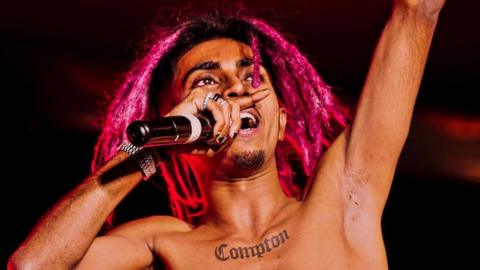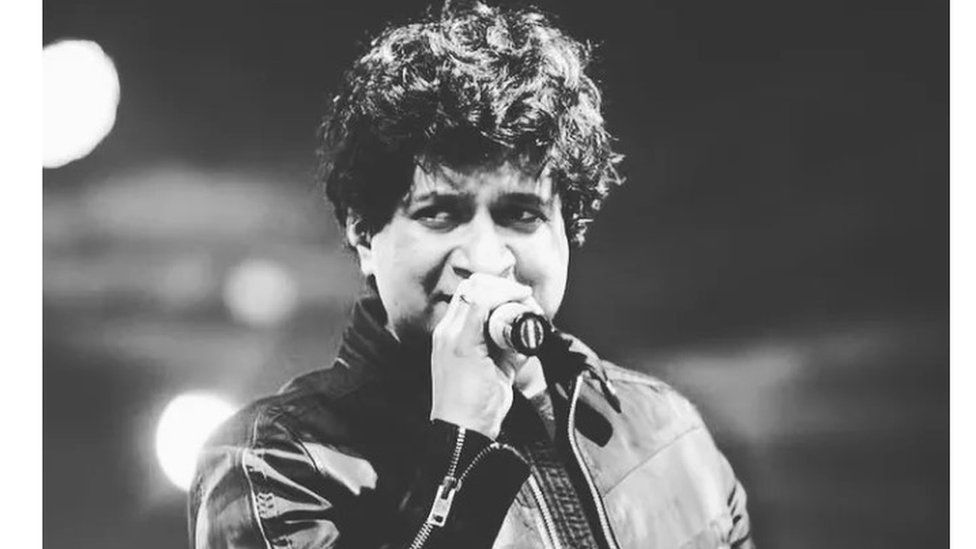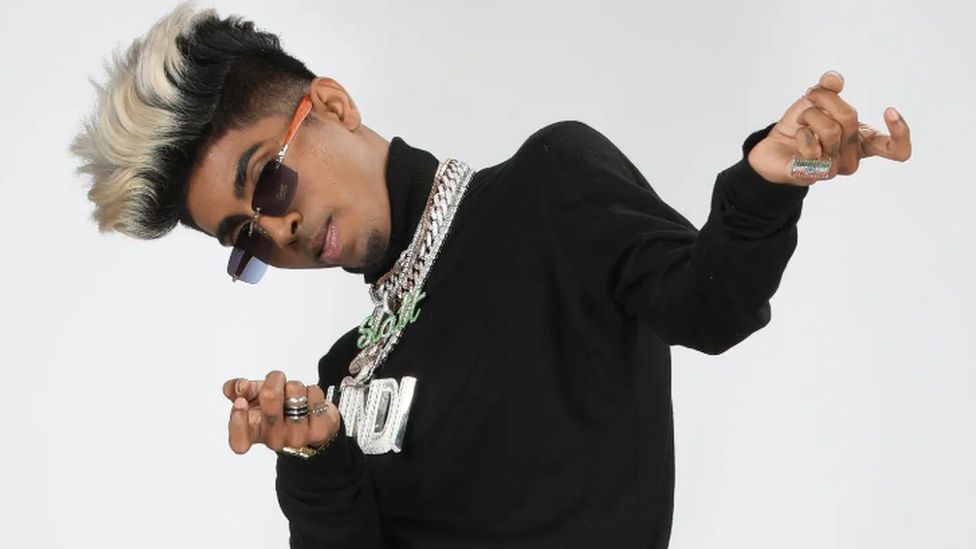
A 23-year-old rapper who grew up in a slum has hit the national spotlight in India after winning one of the country’s most popular reality shows.
Until a few months ago, MC Stan, who is from the western state of Maharashtra, was popular only among hip-hop and rap fans, who loved his brash rhymes and unapologetic style.
But his fanbase has increased by millions after he appeared on the latest season of reality show Bigg Boss, the Indian version of UK’s Big Brother – his name has been trending on social media since Sunday, when the show’s host, actor Salman Khan, announced he was the winner.
Viewers have gushed over Stan’s “raw and real personality” while fans have hailed him as the “saviour of hip-hop” in India. His music has found new admirers, including Bollywood star Ranveer Singh and singer Honey Singh, who called Stan the “Indian Lil Wayne”.
Like many other rappers, Stan had sparked controversies long before his entry into the Bigg Boss house. He has been criticised for using abusive and sexually explicit lyrics, disrespecting women and launching lurid attacks of his rivals through his music. Last year, his former girlfriend filed a police complaint, accusing him of assault – the police had begun investigating the complaint, but no arrests were made.
The rapper has not commented publicly on the allegations but in October, he said that he participated in Bigg Boss because he wanted to “change the perception people have of me”.
His diehard fans, however, say the rapper’s belligerent style is part of hip-hop’s distinct socio-political grammar, which captures the anxieties of people who grew up without privilege.
Aapke pyaar aur votes ne banaaya inhe Bigg Boss ke season 16 Ka winner. 🥰❤️#BiggBoss16 #BB16 #BiggBoss #MCStan pic.twitter.com/zEFCUoVBnw
— ColorsTV (@ColorsTV) February 12, 2023

Stan, whose real name is Altaf Tadavi, began singing in public when he was 12. Not much has been reported about his family but his humble origins – he grew up in a slum in Pune city – have been central to his writing.
“I feel like I am a hood baby [someone who grew up on the streets]” who saw “a lot of criminal activity and did not lead a very privileged life”, he told Platform magazine in an interview.
Growing up, Stan found an unusual template in qawwali – a form of devotional singing in Sufiism which has parallels with gospel jazz – which he says helped him understand music better. “Qawwali talks about stuff that wakes you up, and I related to that a lot,” he told Platform.
Until his Bigg Boss stint, Stan wasn’t interviewed much by the media. He was in high school, he told Platform, when his brother introduced him to rap legends such as Lil Wayne, 50 Cent and Eminem. Their music sparked something in Stan, who then spent hours at dingy cyber cafes, reading about them and listening to their oeuvre.
Two years later, he decided to try it himself. He began by sharing his rap videos with friends and family and on WhatsApp. Once he began getting noticed, he started a YouTube channel – it now has more than six million subscribers – and began to take his art more seriously.
His songs became politically sharper (and the lyrics more abusive) and the videos highly stylised. The aesthetics – replete with jerky jump cuts and flashy neon sets – may have seemed amateur to some, but his expression remained authentic.
Stan also became an unlikely fashion diva. With funky hair extensions, pastel-punk dreadlocks and a map of tattoos and diamond chains peeping through his clothes, the rapper has brought hip-hop fashion closer to Indians.
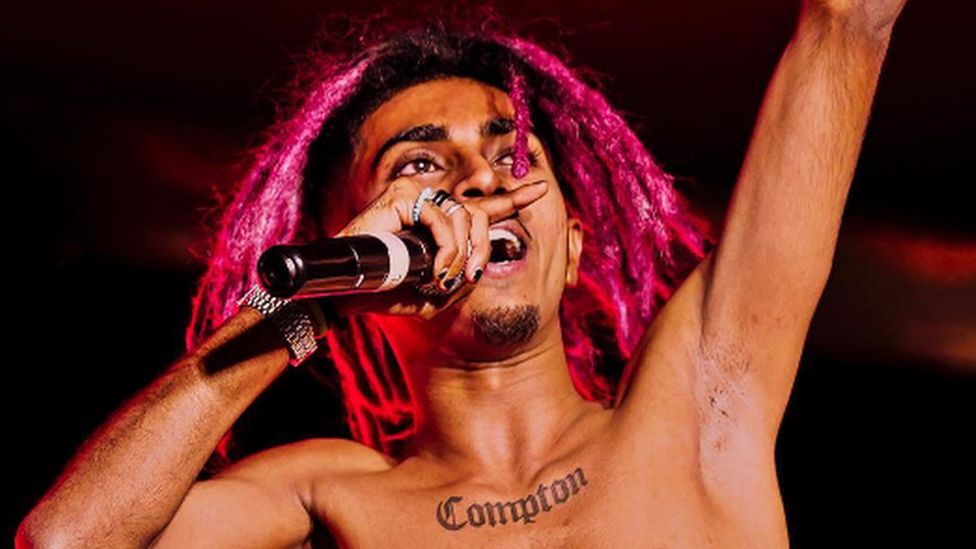
For Stan, rapping was as serendipitous as discovering hip-hop: “It was like I was some alien who has come from outer space with some new stuff to show to the people who live here,” he told Platform.
His big break came in 2019 when he wrote Khuja Mat (Don’t Mess With Me). The diss track, made in response to another rapper who criticised him, got millions of views on YouTube.
“What I really loved was his flow and ability to incorporate absolute nonsense into his lyrics and still sound catchy,” says Dustin Yarde, a fan who discovered the musician through the track.
Since releasing Khuja Mat, Stan has had several hit songs, especially in his 2020 album Tadipaar. Named after the slum where he grew up, the album has searing commentary on living and surviving in violent neighbourhoods as Stan explores his life in “P-town” or Pune. He called himself Basti ka Hasti, which roughly translates to the young slum boy who wrote his own destiny.
“Tune subhe uthke sun dekha, mene subhe uthke gun dekha (You woke up to sunshine, I woke up to guns and violence),” he sneers in the track Amin.
Fans say Stan was always interested in making sense of his own identity through music.
“He had an early song called Astaghfirullah in which he speaks about his Muslim identity and about how he is perceived as a rapper in his community,” Mr Yarde says.
For some, Stan is the pioneer of mumble rap – a loosely defined rap genre where the singer mumbles rhymes without any emphasis on lyricism – in India. “His songs are honest conversations which, when wrapped over a blown-out icy beat, sound dangerously revelatory,” says Aziz Malik, a fan from Canada.
Mr Yarde, however, says he did not enjoy many of Stan’s recent songs because “it seems like he uses homophobic and sexist content as expressions of victory and power”.
“But I always thought he had the ability to make it big. I am waiting for his lyrics to evolve.”
The rapper, who says he has spent time in prison, has written several songs on police brutality. In the song Section 307 – the Indian Penal Code section for murder – Stan talks about how he was wrongly accused of killing someone.
But for his fans, every track is a journey of self-evolution. “The tension between what he was and what he made of himself is the subtext. His music is a reminder that no matter how harrowing his life had been, he triumphed over the odds, all by himself,” Mr Malik says.
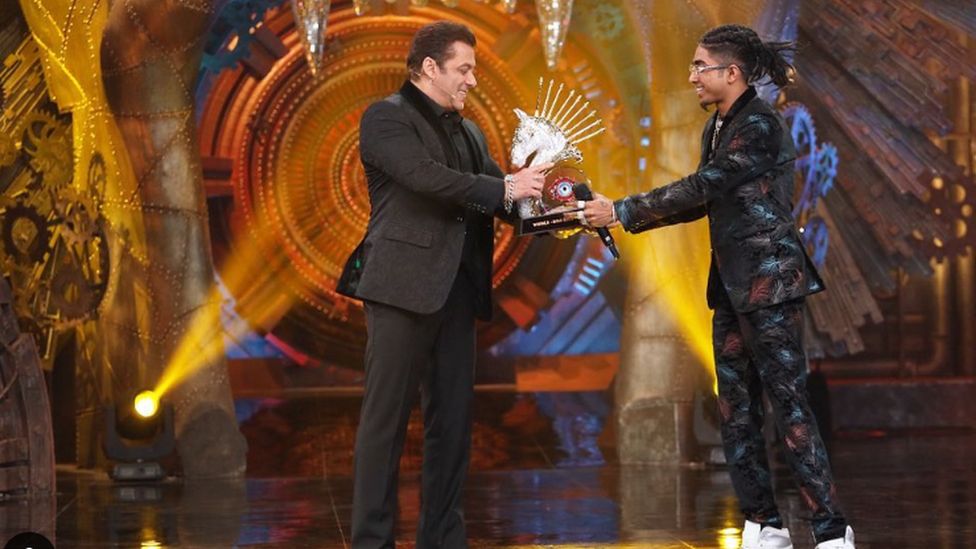
When he joined Bigg Boss, Stan brought along his ability to connect with people.
Fans and contestants loved his charisma, tough talk and raw talent. His punchy one-liners such as ‘Shemdi’, ‘appreciate you’, ‘Haq se’ and ‘feel you bro’ went viral and entered popular lexicon.
Viewers were also impressed by how he adapted to the glitzy sets without losing touch with his roots. And whenever he performed during the show – including an extempore rap performance while inhaling helium from a balloon – fans would celebrate on social media for days. For them, Stan had managed to do something considered impossible – bringing rap, which was on the fringes of India’s music scene, to the mainstream.
“We created history, stayed real throughout, rapped hip-hop on national TV,” Stan posted after his win. “Ammi ka sapna poora ho gaya (My mother’s dream has been fulfilled).”
-
-
4 October 2022
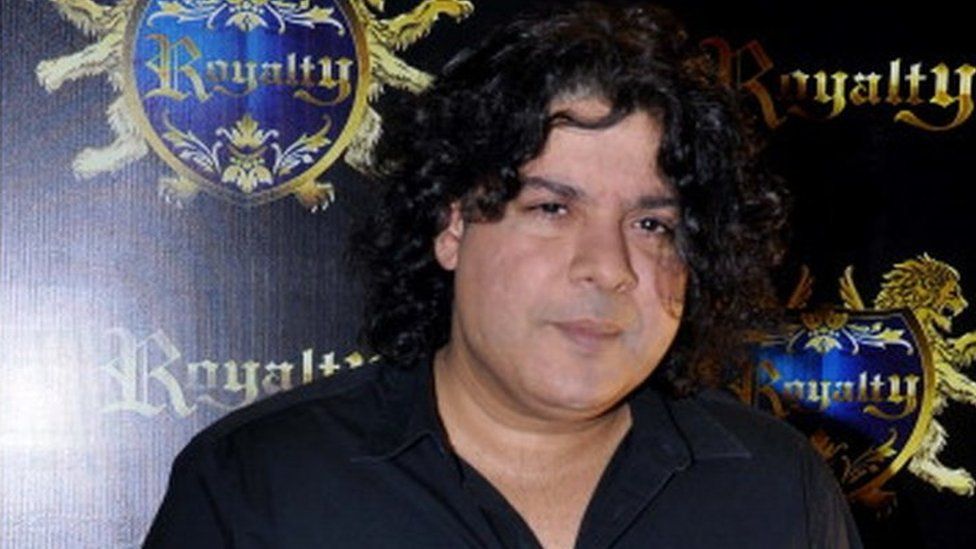
-

